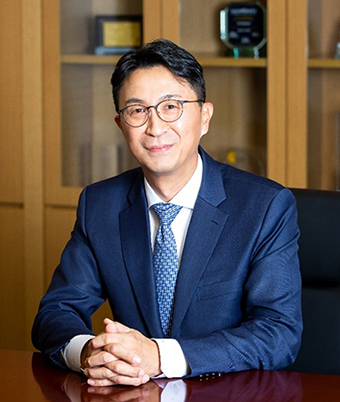
Park Won-cheol, CEO of SKC
That company is SKC, which has pioneered the glass substrate business for semiconductors. Under the leadership of CEO Park Won-cheol, a "new business investment expert," SKC is gearing up for another leap forward with a business that he has meticulously prepared.
At the end-of-year executive reshuffle announced by the SK Group last year, there was no new appointment for SKC's CEO. This effectively meant that Chairman Chey Tae-won reappointed CEO Park Won-cheol, whose term ends in March. Given that SK Inc. holds about a 40% stake in SKC, it was essentially confirmed that Park would continue his role. Furthermore, Park also expanded his managerial scope by concurrently serving as the CEO of Absolics, SKC's U.S.-based glass substrate subsidiary and a key part of the company’s new business portfolio.
However, during Park’s leadership since 2022, SKC’s performance has been disappointing. Operating profit, which stood at around KRW 400 billion in 2021, fell to KRW 186 billion in 2022 and then turned into an operating loss of KRW 216.3 billion in 2023. Another loss of around KRW 250 billion is anticipated for last year.
Despite the underwhelming results, it appears that CEO Park’s efforts to transform SKC into a "global ESG material solution company," focusing on batteries, semiconductors, and eco-friendly materials as its three main pillars, have been highly regarded.
Historically, SKC is often associated with "videotapes" due to its origins in producing PET film for videotape in the 1970s when the company was founded. When the industry began to decline, SKC pivoted to producing polyurethane raw materials, a traditional petrochemical product. Starting in the late 2010s, the company explored new businesses such as solar and display materials. In 2020, it entered the electric vehicle battery business by acquiring SK Nexilis, a manufacturer of copper foil for batteries, through a major M&A deal.
Following the SK Nexilis acquisition, Park Won-cheol was appointed as SKC’s CEO and took charge of nurturing the semiconductor materials business.
In 2021, SKC launched Absolics and invested $240 million (about KRW 320 billion) the following year to build a glass substrate manufacturing plant in Georgia, USA.
In 2023, the company acquired ISC, a post-processing semiconductor testing company, for KRW 520 billion. To address financial difficulties stemming from business challenges and to secure funds for new business investments, SKC actively pursued asset sales.
These divestitures include the sale of Communication equipment (KRW 80 billion) and semiconductor SiC wafers (KRW 70 billion) in 2021, PET film (KRW 1.6 trillion) in 2022, Polyurethane raw materials (KRW 410 billion), semiconductor fine ceramics (KRW 360 billion), and thin films for batteries (KRW 95 billion) in 2023 and 2024. SKC boldly exited businesses, whether core or new, if they were deemed non-essential to its long-term strategic plans.
This portfolio transformation aligns with Park’s area of expertise. Prior to becoming SKC’s CEO, he was responsible for Southeast Asian businesses and new business investments at SK Inc. Park’s background is quite unique: he earned a Ph.D. in Chemical Engineering from Seoul National University, studied at the University of Chicago’s Graduate School of Business, and began his career at Boston Consulting Group (BCG). He then moved between several companies, including OCI, SK Inc., GS Energy, and Hana Asset Management, alternating between the energy and investment sectors, before rejoining SK Inc. in 2018.
Perhaps because of his long career in the investment field, he is also active in building and communicating the ‘financial story’ that SK Group Chairman Chey Tae-won ordered company-wide. The financial story is a financial strategy that contains a mid- to long-term business vision to make the company attractive to stakeholders such as customers and investors. Park has made portfolio transformation into the three aforementioned core areas the centerpiece of this strategy, which he has actively communicated to shareholders and other stakeholders. He has hosted online general shareholders' meetings for two consecutive years since 2023 and has also been in charge of presenting them in person. Despite the lackluster performance, Park has emphasized strengthening profitability in core businesses like copper foil and accelerating the stabilization of new ventures such as glass substrates and biodegradable materials.
Business transformation only holds value if it translates into tangible results.
SK Group seems to have high expectations. On the 9th, during CES(Consumer Electronics Show) 2025 in Las Vegas, Chairman Chey Tae-won visited SKC’s exhibition.
While holding a model of SKC’s glass substrate, Chey remarked, “I just sold this.” The industry interprets this as a sign that SKC has succeeded in securing NVIDIA as a client for its glass substrates.
Key Information about Park Won-cheol
△ Born: 1967 △ Education: Ph.D. in Chemical Engineering, Seoul National University; MBA, University of Chicago △ Career: Boston Consulting Group; OCI; SK Inc. (Global Business Development); GS Energy (Energy & Support Business Division Head); Hana Asset Management (Head of Energy Infrastructure Investment Division); SK Inc. (Head of Global Growth Support, Strategy Support, and New Business); CEO of SKC and Absolics (current)
Gwak Horyung (horr@fntimes.com)





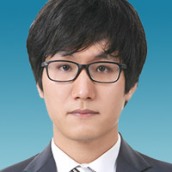









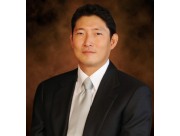

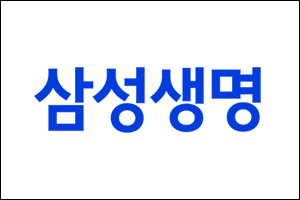








![[ECM] 연말 이어 연초까지…IPO 시장 '북적', 주관사도 '기지개'](https://cfnimage.commutil.kr/phpwas/restmb_setimgmake.php?pp=006&w=69&h=45&m=5&simg=2025111320592100145179ad439071182355207.jpg&nmt=18)

![강남·위례와 맞붙은 복정역 '에피트' 견본주택 가보니… [르포]](https://cfnimage.commutil.kr/phpwas/restmb_setimgmake.php?pp=006&w=69&h=45&m=5&simg=2025111416474806363048b718333211234196213.jpg&nmt=18)

![[DCM] 넷마블, 본업만 신용도 발목…더 주목받는 EB 발행](https://cfnimage.commutil.kr/phpwas/restmb_setimgmake.php?pp=006&w=69&h=45&m=5&simg=2025111404501304379a837df6494123820583.jpg&nmt=18)
![황병우號 iM뱅크, '시중은행 2막' 이끌 차기 리더는···강정훈·김기만 '물망' [2025 CEO 인사전망-iM금융]](https://cfnimage.commutil.kr/phpwas/restmb_setimgmake.php?pp=006&w=69&h=45&m=5&simg=2025111415030600919300bf52dd2121131180157.jpg&nmt=18)

![강성묵 하나증권 대표, '키 맨'으로 비은행 강화 총력…지주-증권 역할 관건 [2025 CEO 인사 전망- 하나금융]](https://cfnimage.commutil.kr/phpwas/restmb_setimgmake.php?pp=006&w=69&h=45&m=5&simg=2025111214493308930179ad43907222110701.jpg&nmt=18)
![김영성 KB자산운용 대표, 수익성 제고…성과평가 관건 [2025 CEO 인사 전망- KB금융]](https://cfnimage.commutil.kr/phpwas/restmb_setimgmake.php?pp=006&w=69&h=45&m=5&simg=2025111409104408964179ad439072115218260.jpg&nmt=18)
![남궁원 하나생명 대표, 공격적 영업 매출 CSM 확대 성과…높은 연임 가능성 [2025 CEO 인사전망-하나금융]](https://cfnimage.commutil.kr/phpwas/restmb_setimgmake.php?pp=006&w=69&h=45&m=5&simg=2025042910033404253dd55077bc212411124362.jpg&nmt=18)








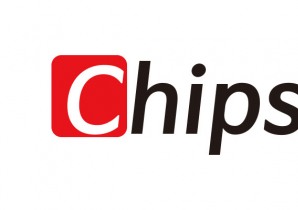
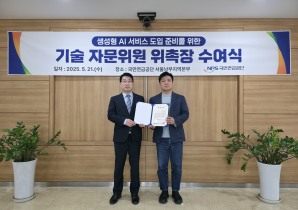
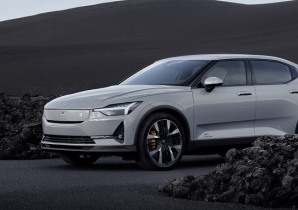
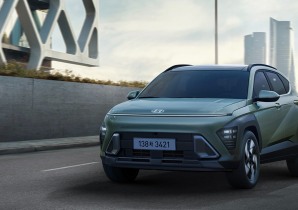
![[카드뉴스] KT&G, 제조 부문 명장 선발, 기술 리더 중심 본원적 경쟁력 강화](https://cfnimage.commutil.kr/phpwas/restmb_setimgmake.php?pp=006&w=298&h=298&m=1&simg=202509241142445913de68fcbb3512411124362_0.png&nmt=18)
![[카드뉴스] KT&G ‘Global Jr. Committee’, 조직문화 혁신 방안 제언](https://cfnimage.commutil.kr/phpwas/restmb_setimgmake.php?pp=006&w=298&h=298&m=1&simg=202503261121571288de68fcbb3512411124362_0.png&nmt=18)
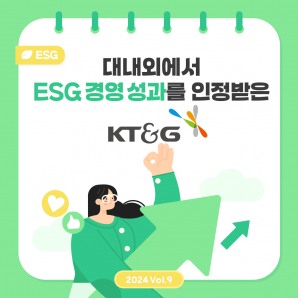
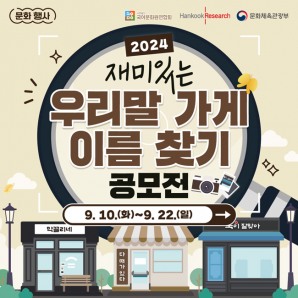
![[카드뉴스] 국립생태원과 함께 환경보호 활동 강화하는 KT&G](https://cfnimage.commutil.kr/phpwas/restmb_setimgmake.php?pp=006&w=298&h=298&m=1&simg=202403221529138957c1c16452b0175114235199_0.png&nmt=18)
![[신간] 고수의 M&A 바이블](https://cfnimage.commutil.kr/phpwas/restmb_setimgmake.php?pp=006&w=81&h=123&m=5&simg=2025091008414900330f8caa4a5ce12411124362.jpg&nmt=18)
![[신간] 리빌딩 코리아 - 피크 코리아 극복을 위한 생산성 주도 성장 전략](https://cfnimage.commutil.kr/phpwas/restmb_setimgmake.php?pp=006&w=81&h=123&m=5&simg=2025032814555807705f8caa4a5ce12411124362.jpg&nmt=18)
![[서평] 추세 매매의 대가들...추세추종 투자전략의 대가 14인 인터뷰](https://cfnimage.commutil.kr/phpwas/restmb_setimgmake.php?pp=006&w=81&h=123&m=5&simg=2023102410444004986c1c16452b0175114235199.jpg&nmt=18)

![[신간] 조금 느려도 괜찮아...느림 속에서 발견한 마음의 빛깔](https://cfnimage.commutil.kr/phpwas/restmb_setimgmake.php?pp=006&w=81&h=123&m=5&simg=20251105082239062852a735e27af12411124362.jpg&nmt=18)

![[AD] 기아 ‘PV5’, 최대 적재중량 1회 충전 693km 주행 기네스 신기록](https://cfnimage.commutil.kr/phpwas/restmb_setimgmake.php?pp=006&w=89&h=45&m=1&simg=20251105115215067287492587736121125197123.jpg&nmt=18)
![[카드뉴스] KT&G, 제조 부문 명장 선발, 기술 리더 중심 본원적 경쟁력 강화](https://cfnimage.commutil.kr/phpwas/restmb_setimgmake.php?pp=006&w=89&h=45&m=1&simg=202509241142445913de68fcbb3512411124362_0.png&nmt=18)
![[AD]‘황금연휴에 즐기세요’ 기아, ‘미리 추석 페스타’ 이벤트 실시](https://cfnimage.commutil.kr/phpwas/restmb_setimgmake.php?pp=006&w=89&h=45&m=1&simg=20250903093618029117492587736121166140186.jpg&nmt=18)
![[AD]‘패밀리카 선두 주자’ 기아, ‘The 2026 카니발’ 출시](https://cfnimage.commutil.kr/phpwas/restmb_setimgmake.php?pp=006&w=89&h=45&m=1&simg=2025081810452407346749258773621116810840.jpg&nmt=18)
![[AD] ‘상품성↑가격↓’ 현대차, 2025년형 ‘아이오닉 5’·‘코나 일렉트릭’ 출시](https://cfnimage.commutil.kr/phpwas/restmb_setimgmake.php?pp=006&w=89&h=45&m=1&simg=202505131018360969274925877362115218260.jpg&nmt=18)



